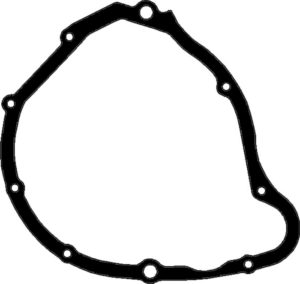 One of our most common questions is how do I know if I have to replace my gasket? A good question, it is important that you are aware of if and when to change your gasket to avoid permanent damage to your engine and its parts.
One of our most common questions is how do I know if I have to replace my gasket? A good question, it is important that you are aware of if and when to change your gasket to avoid permanent damage to your engine and its parts.
While the most concerning gasket for most is the head gasket, other gaskets also play an important role in the way your engine runs. From the carburetor to the crankcase to the cylinder, these gaskets are there for a reason.
So how do you know when you need to replace your gasket?
To understand this, you first need to understand the purpose of a gasket. A gasket is a sealing device which is made of a material which is able to “deform”, to better fill any irregularities or gaps between two or more surfaces. Like other parts of your engine however, gaskets don’t last forever and as in the case of your head gasket, a blown gasket is cause for concern.
When your gaskets are bad, the seal between these parts will be less than perfect. If this occurs, air and sometimes fluid, will leak through the seal. This leak can prevent an engine from functioning properly. The primary reasons for failure in gaskets are:
1. Uneven pressure on the gasket – if the pressure internally does not push evenly on the gasket, it is likely to “blow out”. If the gasket is not installed correctly, this may lead to weakening in some areas and failure in the gasket eventually
2. Engine heat – overheating is a common cause of head gasket failure but could cause failures in any gasket. Thermal expansion between the parts can lead to loss of compression and then corrosion and failure of the seal altogether.
3. Overtightening – it is as important to avoid overtightening your gaskets as it is to ensuring they are evenly tightened. Too much tension can crush a gasket making it ineffective.
4. Bad or incorrect gaskets – lastly, one of the most common reasons for failure of many gaskets is choosing the wrong gaskets or gaskets which are poorly made. Choosing gaskets which are not made of high quality materials or gaskets not meant for your particular make and model, can lead to a failure of any gasket.
Once a gasket fails, an engine is less efficient and will it not run well. Leaving a gasket leaking, such as a head gasket, can lead to permanent damage to your bike leading to costly repairs. For this reason, it is important that you make sure that your gaskets are installed correctly, that they are made of high quality materials and that they are the right ones for your bike. Your engine depends on it.

